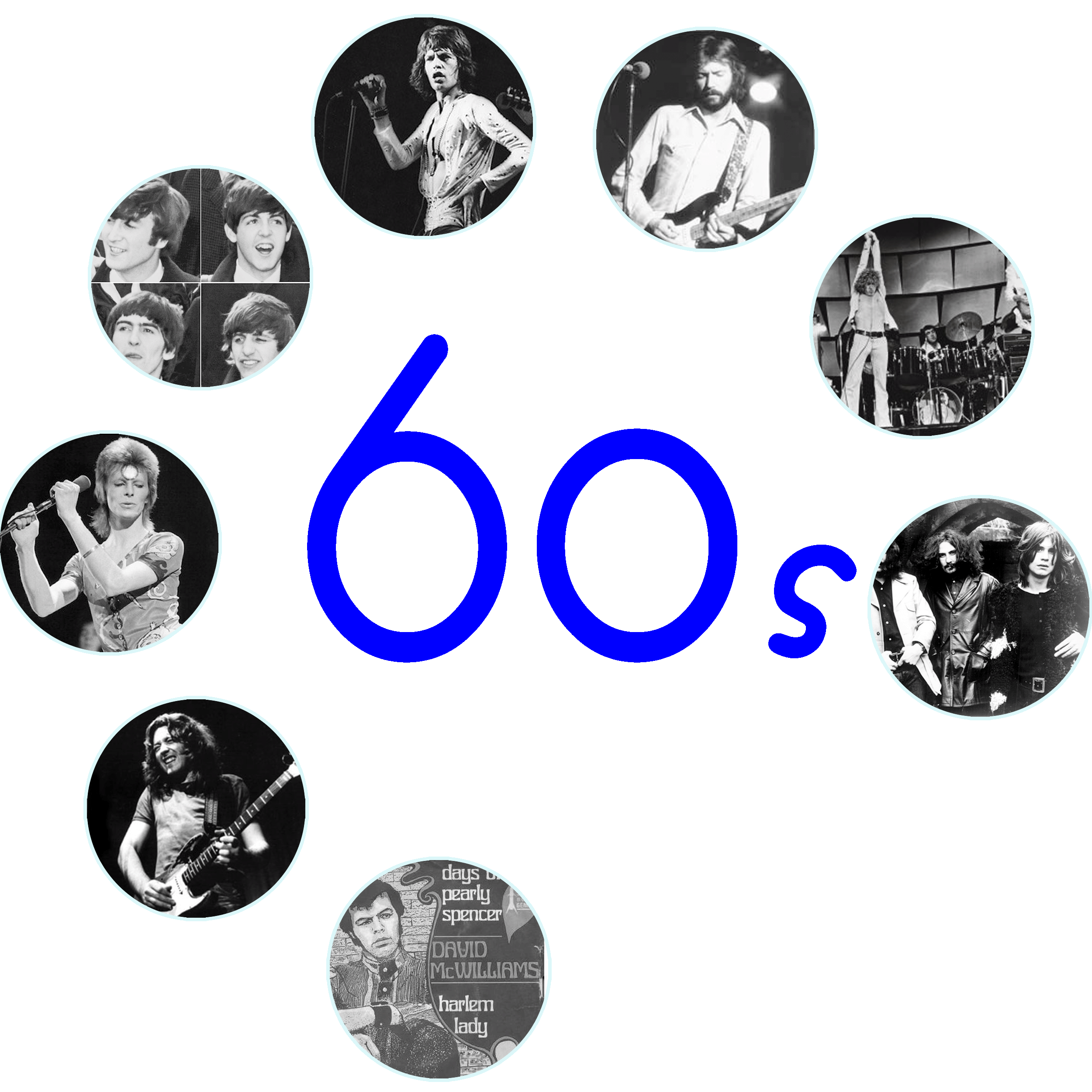
Why are the Brits the real Kings of Pop?
par Gaëtan Gennaro-Presse, le 31 mai 2013
Elvis Presley, Michael Jackson Madonna and Lady Gaga may all be Americans. But, let’s face it, the real Kings of Music are the Brits. Isn't the number of recent biopics dedicated to British musicians the best evidence of this? Naming but a few is enough to get the idea across: the Beatles, The Rolling Stones, David Bowie and Eric Clapton. Brits, but not only, Irish have some good reasons to be proud too, as good as U2 for example. Notwithstanding Scottish and Welsh who also had their share… So, here is an overview of 50 years of unwavering world domination of British (and Irish) music !
The Sixties
As the swinging sixties were opening and the world falling for London, the new world capital of fashion, culture and arts, a wave of British artists emerged. The period is perfectly epitomized by the Austin Powers movies.
The Fab Four and the sound of Liverpool were, some argue, the early form of British pop. The Beatlemania soon spread through Europe and the whole world as everybody started singing “yeah yeah yeah” on tunes like She loves you, Ticket to ride, Let it be or Hey Jude.
The Rolling Stones, on the other hand, played an important part in the British Blues Boom of the mid-sixties and the subsequent “British Invasion” (the massive arrival of British musicians in the American charts). Songs like Paint it Black, Angie or I can’t get no are classics that everybody knows.
In the wake of these bands, The Who launched the “maximum R&B”, pioneering in music and creating a world-famous opera rock. Keith Moon, their late drummer, was one of the best drummers ever. Nowadays, the Who are still famous, they played at the Half Time Show of the Super Bowl in 2010 and their songs are hugely featured in movies and TV-shows. CSI series all open on a song by the Who (CSI: Who are you; CSI Miami: Won’t get fooled again; CSI Manhattan: Baba O’Riley).
Eric Clapton, nicknamed God by his fans, rose to fame at about the same period, first with the Yardbirds, then with John Mayall and the Bluesbreakers before creating a power-trio, Cream, between Blues and psychedelic rock. Rated as the fourth All-time best guitarist by the Rolling Stone magazine, Clapton is still one of the most famous guitarists nowadays. His unplugged session on MTV revealed the acoustic version of one of his most iconic song, Layla.
With a career spanning over five decades and an estimated 136 million albums sold worldwide, David Bowie is another great figure of British music. From psychedelic rock to glam rock, the androgynous singer experimented in many different styles, from Ziggy Stardust to his duet with Placebo Without you I’m nothing. In 2004, Rolling Stone magazine ranked him 39th on their list of the 100 Greatest Rock Artists of All Time.
A young Irish guitarist who was to become internationally famous in the 70s started touring with bands, Rory Gallagher. Elected International Guitarist of the Year for 1972, the gifted guitarist influenced many a musician, including Brian May from Queen and the Edge from U2. He died prematurely in 1995 and many outstanding musicians paid tribute to his genius. Eric Clapton described him as “the man who got me back into the blues”.
A comprehensive review of the sixties would also include the Pink Floyd and their Wall, Deep Purple’s rock hit Smoke on the Water, T-Rex’s Get it on, Ozzy Osbourne and Black Sabbath or Marianne Faithfull, all of them English. Let’s not forget the Welsh singer Tom Jones and his world famous What’s up Pussy Cat or the Scottish Al Stewart, composer of the unforgettable Year of the Cat. And in Ireland, while Van Morrisson sung Brown-eyed Girl, Them released the hit Gloria and David McWilliams wrote the heart-rending Days of Pearly Spencer.


